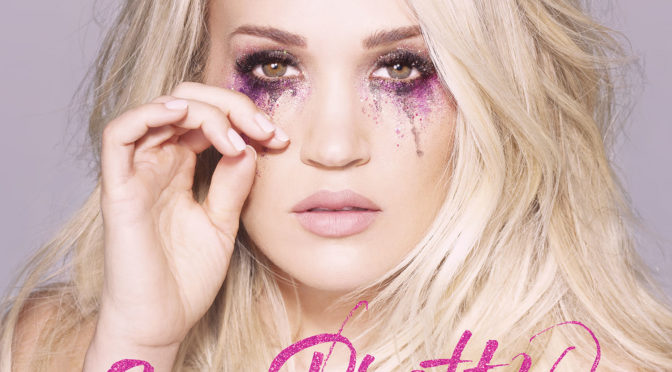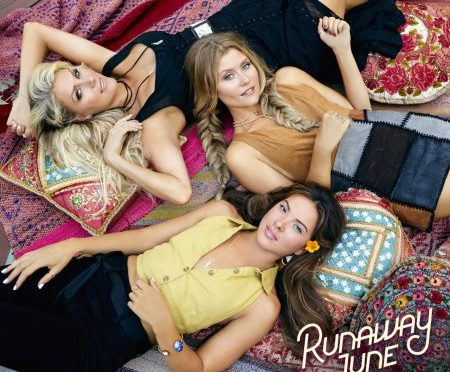Rating: 4/10
Carrie Underwood’s sixth album could have been her best one so far. It certainly had possibility. It marked the transition from Sony to UMG, her first label change since she won American Idol all those years ago. There were hints of this album being particularly personal to her, and the first single, the title track from the album, certainly seemed to be. It was strong, explaining that no matter how hard you try to keep your emotions in check for the public, sometimes everything comes pouring out. I commented in my review of the single how different it was from almost everything on country radio at the moment, being written solely by women, containing actual country instrumentation and being able to be correctly labeled pop country, and most importantly, just being substantive. “Love Wins,” though not quite the stirring anthem of unity it thinks it is, still showed promise for the album. I’ve been intrigued by this record both as a reviewer and as a fan. This was Carrie Underwood’s opportunity to show leadership in the country genre, and she seemed to be doing that pretty well ahead of the release.
As for the album? If I could sum it up in one word, it would be disappointing. It just destroys all your hopes and dreams and expectations and leaves you thoroughly dismayed that Carrie Underwood has squandered another chance to live up to her incredible potential.
This disappointment is amplified even more by the impressive strength of the opening three tracks. First, we have the single and title track, followed by “Ghosts on the Stereo” and “Low,” two songs about getting over a relationship. Aside from both displaying country themes, there’s some country flavor to each of them as well, and though both are primarily pop with country hints sonically, they fit Carrie Underwood well. The lyrics are strong, and Underwood’s vocals on “Low” are just astonishing. This song does a great job building throughout, making the most of her raw vocal talent. Three songs into this album, I was starting to think this might end up being one of Carrie’s best. Mainstream records tend to get better as they go along as well, so this made Cry Pretty even more promising.
Then we get to “Backsliding,” and everything just starts to fall apart. Look, I get that Carrie Underwood is just as much, if not more so, a pop artist than a country one, but she’s always blended the two genres fairly well. These songs are increasingly cluttered by overproduction; instead of blending country and pop naturally, many of these songs feel like they’ve been forced into pop crossover status. If “Southbound,” your standard mainstream party anthem, disposable and lacking any real substance, were the worst thing here, we could excuse it as a misstep, an ill-advised attempt at radio relevancy. As it is, it’s comparatively harmless when the sixth track, “That song That We Used to Make Love To,” comes on, with its weird, unnecessary electronic sounds and generic R&B production. There are some especially distracting sounds at the beginning of this song that make me seriously question these producer’s ear for music–how does it enhance a song to add random squawking sounds in the mix? Who thought this made the track better? Similar to Keith Urban’s latest album, there are places here where it just feels like they went into the studio, pressed a bunch of random buttons, and sent it out. Someone needs to tell these people that more doesn’t always mean better because subtlety and nuance have clearly become lost concepts on Music Row. In Carrie Underwood’s case, I can’t even say her songs were screwed up by ambitious producers, for she herself did much of the producing on this record. This was something that initially excited me, especially given the lack of female producers in country and music in general, but this was clearly not a great production decision.
We do get one more outstanding cut on the latter half of the album with the piano ballad “Spinning Bottles.” This song looks at drinking and addiction and how it affects two people in a relationship. Carrie’s vocal performance is excellent, the piano is beautiful, and the production doesn’t get in the way of everything. this is one place where they managed to hold back, and it really paid off.
This song is flanked by “The Bullet” and “Love Wins,” this record’s attempt to get political, or more accurately, to promote unity despite this contentious political climate. “The Bullet” is a look at the lives of a victim’s family after he was shot, stating that the effects last far beyond the funeral. It’s careful not to take a side, with the line “you can blame it on hate, or blame it on guns” sticking out to let the song speak to all sides. “Love wins” is more generic, just your typical song about coming together and loving one another. Both songs are strong in light of the rest of the album, but equally, both are just a bit too sappy and obvious. On a stronger project, I don’t really mind these two songs, but they don’t add anything; here, they’re better than some of the rest but ultimately still feel a bit underwhelming. “The Bullet” is the better of the two since it has a bit more to say and more specific details.
The rest of the latter half is just unremarkable. Both “Drinking Alone” and “Kingdom” are fine lyrically, but again, the production is just messy. “Kingdom” actually starts out understated, but by the second verse, this simple ode to her family and home life gets drowned out by the arrangement. this song would have worked if they’d been able to resist turning it into a power ballad. WE get that Carrie Underwood can belt, but being able to pull out the simplicity and emotion of a song is just as important as sustaining all these high notes. “Drinking Alone” is one of those times where Carrie’s pop side would have come out naturally and made the song great, but instead of a good pop song, it’s infused with that same production style that hinders some of the other tracks, an almost R&B flavor. Underwood’s vocals are strong here, though, making this one mediocre rather than terrible. “End up with You” is just awful, annoying and overproduced as much as “That Song That We Used to Make Love To” on the front of the album. And of course we have “The Champion” as a bonus track, which serves its purpose well enough as a Super bowl hype song, but it’s just so unflattering to the vocal range and talents of Carrie Underwood. On an already disappointing, subpar effort, this track just seems like a fittingly bad closer.
I really wish I enjoyed this album more. Aside from “Spinning Bottles,” I remain distinctly underwhelmed from the fourth track onward. It’s not that there’s more pop material on this project either, it’s that everything is so forced and over the top. The production through so much of this is just a cacophonous mess. It only adds insult to injury that the first three songs and “Spinning Bottles” are so strong because these are some of the best of Carrie Underwood’s career. But this is easily her least consistent, least country, most disappointing, and ultimately worst album she has released to date. It had so much potential, and that potential comes out in several places on this record. Don’t overlook those places. It’s just such a shame, though, that this album so spectacularly fails to live up to expectations or to the talent and ability of Carrie Underwood.
The Good
The Bad


